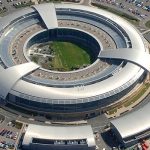Over 40 journalists and lawyers have provided evidence for an independent review into allegations that the Police Service of Northern Ireland (PSNI) illegally spied on them. This review was ordered by Chief Constable Jon Boutcher to investigate claims that the PSNI accessed phone data from journalists, lawyers, and NGOs, violating the confidentiality of journalistic sources and attorney-client privilege.
This inquiry stems from findings by the Investigatory Powers Tribunal (IPT), which revealed that both the PSNI and the Metropolitan Police conducted illegal surveillance on journalists Barry McCaffrey and Trevor Birney. Next week, MPs from the Northern Ireland Affairs select committee will hear from McCaffrey and Birney in a session focused on press freedom in Northern Ireland.
Angus McCullough KC, leading the review into PSNI surveillance from January 2011 to December 2024, reported that 50 individuals and two organizations have stepped forward with evidence. About 80% of the responses came from journalists and lawyers, while only 5% addressed issues outside the review’s scope. McCullough noted a presumption that those affected by unlawful surveillance would be informed, as long as it didn’t violate legal constraints.
With the help of Matthew Hill, who has experience from the Post Office Horizon inquiry, and Rajkiran Arhestey, McCullough expressed confidence in having unrestricted access to PSNI documents and computer systems. The review team is particularly interested in whether police officers could have bypassed proper legal processes, potentially engaging in “off the books” surveillance.
McCullough highlighted that surveillance does not have to target journalists or lawyers directly to risk exposing legally protected information. The team has used the evidence gathered to pinpoint keywords and names for searches in PSNI systems. They’ve implemented measures to keep their search parameters hidden from the PSNI to protect the identities of those who submitted evidence.
However, searching the PSNI systems has proven to be more labor-intensive than expected. Over the last 14 years, surveillance laws and PSNI data management practices have evolved significantly. McCullough declined to broaden the review to cover how the PSNI monitors its staff or to investigate surveillance by MI5 or other police forces.
In December 2025, the IPT found that former PSNI chief constable George Hamilton acted unlawfully by authorizing a surveillance operation to discern the source of reports from the two journalists. McCaffrey and Birney faced unlawful arrests, and their belongings were seized after they produced a film that revealed police collusion with a paramilitary group responsible for the deaths of six innocent people in Loughinisland, County Down, in 1994.
Between 2022 and 2024, there were nearly 60 complaints lodged against the PSNI with the IPT. The tribunal mandated the PSNI to release internal documents 28 times and has adjudicated on four cases involving the force. Chief Constable Jon Boutcher acknowledged in his report that the PSNI surveilled over 500 lawyers and 300 journalists, including several BBC reporters.
Additionally, the IPT is reviewing allegations that the PSNI unlawfully spied on former BBC journalist Vincent Kearney while he was working on a 2011 Spotlight documentary about the police watchdog’s independence in Northern Ireland. Some campaigners argue that the McCullough review isn’t sufficient and are calling for a public inquiry into police surveillance of journalists across Northern Ireland and the UK. Meanwhile, Computer Weekly has also submitted evidence for the McCullough review.









